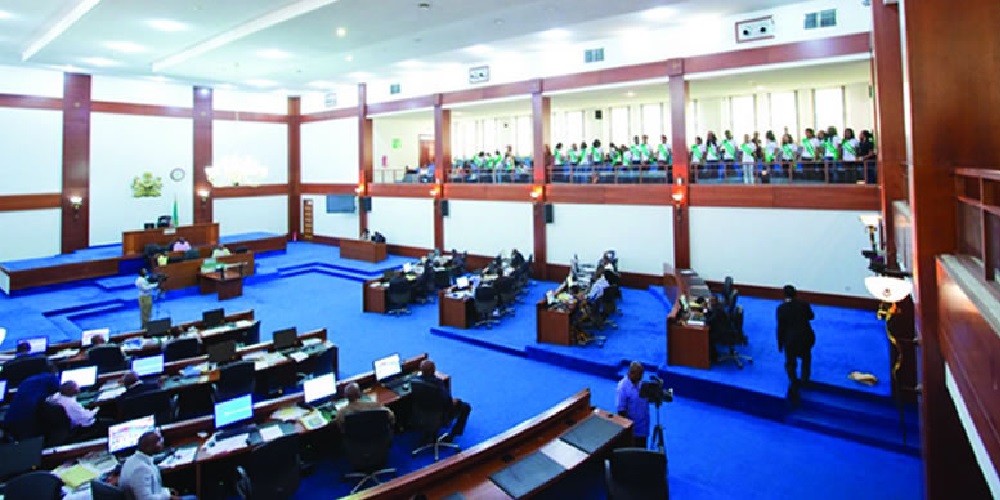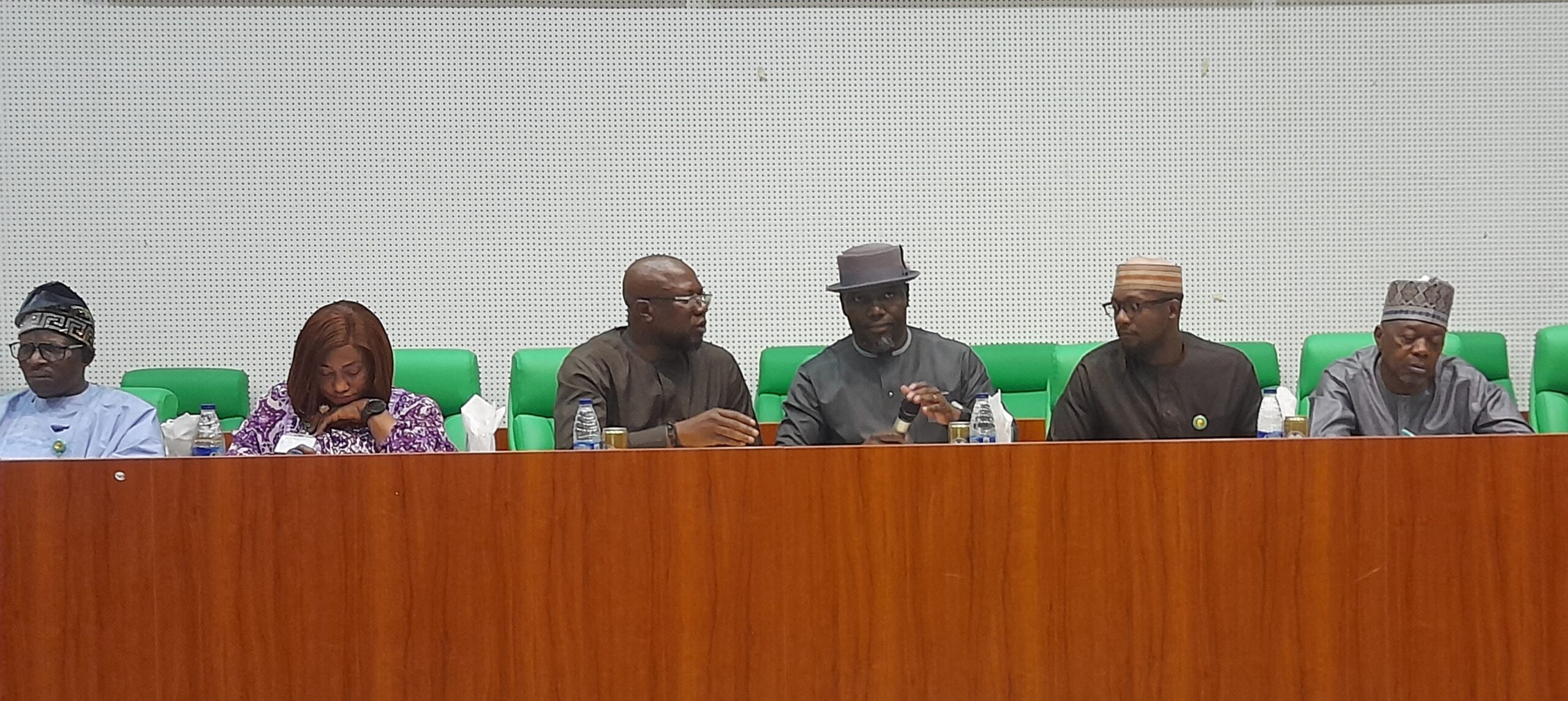News
Drama as Binance executive, Gambaryan, collapses in court over alleged ill-health

By Francseca Hangeior
There was a mild drama at a Federal High Court in Abuja on Thursday, as detained Binance executive, Tigran Gambaryan, who is facing a money laundering charge, slumped in the open court over alleged ill-health.
The development occurred shortly after the matter was called for trial continuation before Justice Emeka Nwite.
As soon as the case was called by the court registrar, Gambaryan did not step forward to the dock from the back row seat where he was seated.
Justice Nwite then asked where the 2nd defendant (Gambaryan) was and one of the lawyers in the defence team, who sat beside Gambaryan, held him by the side towards the dock.
As they walked slowly to the dock, Gambaryan fell down and the lawyer assisted him to sit in the front row seat.
His lawyer, Mark Mordi, SAN, explained to the court why his client could not stand as soon as the matter was called.
Mordi said Gambaryan had been indisposed and a written application letter had been filed to notify the court of his failing.
“My lord, the case may not certainly proceed today,” he said.
Throughout the proceeding, the cryptocurrency firm’s agent rested on the arm of the seat where he was sitting.
Justice Nwite had, on May 16, dismissed Gambaryan’s bail application on the ground that the EFCC had been able to establish that the defendant, who is currently being remanded at Kuje Correctional Centre, would jump bail if granted.
News
Rivers Assembly invites Electoral Boss over LG poll

The Rivers State House of Assembly has issued a stern warning to the Chairman of the Rivers State Independent Electoral Commission (RSIEC), Justice Adolphus Enebeli (rtd), threatening to arrest him if he fails to appear before the House by Friday, March 7, 2025.
This development followed after a motion moved by a member, Enemi George, representing Asari-Toru Constituency 2, during Wednesday’s plenary session.
The electoral chief had earlier fixed August 9, 2025, to conduct a fresh Local Government (LG) poll in the state following a Supreme Court verdict that annulled the October 5, 2024 local government poll conducted in the state.
The Martins Amaewhule-led Assembly said it would probe the conduct of the electoral chief in office regarding the conduct of the annulled LG poll last year.
On Sunday, Rivers State Governor, Siminalayi Fubara, assured the people of the oil-rich state that his administration will implement the Supreme Court’s verdict after carefully reviewing its Certified True Copy (CTC).
In a state broadcast on Sunday, Fubara revealed that he has met with his legal team, who expect to obtain the CTC by Friday, March 7, 2025.
He emphasised that his government is committed to upholding constitutional principles and will act in line with the law.
The governor also directed the Heads of Local Government Administration (HLGAs) to take immediate control of the 23 local government councils across the state, following the Supreme Court’s ruling that nullified the October 5, 2023, local government elections.
Fubara stated that the civil servants would oversee affairs until fresh elections are conducted by the State Electoral Commission.
The Supreme Court, in another judgment on Friday, barred the Central Bank of Nigeria (CBN), the Accountant General of the Federation and other agencies from releasing funds to the government of Rivers State until it purges itself of what the court described as flagrant disobedience to court orders.
In the judgment delivered by Justice Emmanuel Akomaye, the five-man panel of the court unanimously dismissed the cross-appeal filed by Fubara challenging the validity of the House of Assembly presided over by Amaewhule as the Speaker.
In dismissing Fubara’s appeal, the court ordered Amaewhule to resume sitting immediately with other elected members of the Rivers State House of Assembly.
News
Reps Invite Executive Secretary FCDA, Director Development Control

They are expected to explain why the development of a controversial property is proceeding despite clear violations of the Federal Capital Territory’s building regulations.
In a petition to the House demanding urgent intervention, a private citizen, Samuel Ajayi, argued that allowing the construction to continue would undermine the meticulous planning that shaped the FCT. The property in question is reportedly located in the Guzape Cadastral Zone.
Responding to the petition, the Committee Chairman, Mike Etaba, directed the Executive Secretary of the FCDA and the Director of Development Control to promptly address the issue.
He said: “At this point, it is a complaint until we establish the facts therein. Every Nigerian’s voice must be heard while all public officers must be made accountable. We shall ensure fair hearing for all the parties”.
Meanwhile, the Committee has directed the Managing Director of the Niger Delta Development Commission (NDDC) to appear in person on Tuesday 11th March, 2025, to clarify the circumstances surrounding the abandonment of the Okpai shoreline protection and landing jetty project in Delta State.
This follows a petition submitted by Lynpat Solicitors against Orbit Marine and Energy Services Ltd for failing to complete the project.
News
Reps Direct Cleaup Of Oil Spill, Fire Incident In Buguma

-

 News17 hours ago
News17 hours agoBREAKING:Scared Akpabio uses police to disperse pro-Natasha protesters at NASS
-

 News15 hours ago
News15 hours agoAKPABIO’S GATE: Senate turns down Live Coverage As Natasha Appears Before Panel
-

 Economy24 hours ago
Economy24 hours agoCBN appoints 16 new directors in major shake-up
-

 News17 hours ago
News17 hours agoJust in: Abuja Court stops Senate from probing Senator Natasha
-

 News14 hours ago
News14 hours agoBREAKING: Sword of Domocle Hangs over Akpabio Senate Presidency as Sen. Natasha Formally Files Sexual Harassment Petition
-

 Opinion15 hours ago
Opinion15 hours agoDomesticating AI for African children
-

 News19 hours ago
News19 hours agoNatasha; Delta women demand unreserved apology from Akpabio
-

 Sports24 hours ago
Sports24 hours agoWCQ: Ahmed Musa returns as Super Eagles name team







